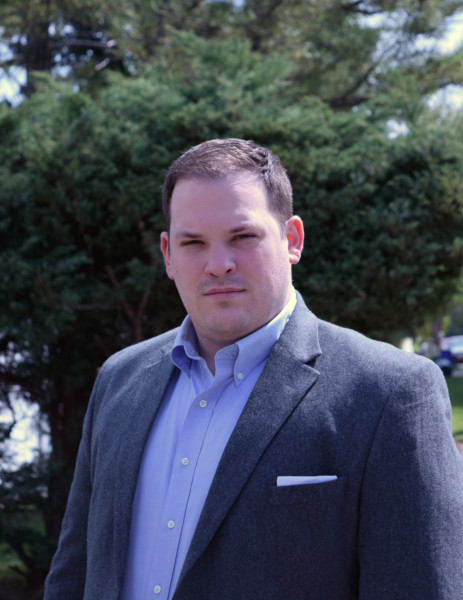In 1963, Madalyn Murray O’Hair, a woman from Baltimore, sued her son’s school district after learning that it required students to read the Bible. The case, Murray v. Curlett, soon joined with another, Abington School District v. Schempp, and was argued before the Supreme Court, which ruled that mandatory Bible reading in public schools was unconstitutional. O’Hair and her allies went on to form American Atheists, an organization “dedicated to advancing the civil rights of atheists, promoting separation of religion from government, and providing information about atheism.” To advance these goals, O’Hair circulated a newsletter, which by 1971 grew into a bimonthly publication, American Atheist magazine. Today it lives in print and online, covering the links between religion and public policy in opinion essays and reported features; it also maintains a library of atheist-related journals that number in the thousands. The magazine functions as a legislative watchdog, too: for a recent “State of the Secular States” report, American Atheist scrutinized state laws for religion-based exemptions that enable child marriage and conversion therapy that claims to turn gay people straight.
Speaking recently with CJR, Nick Fish, the president of American Atheists and an editor of its magazine, expressed frustration that journalists often give disproportionate attention to faith leaders at the expense of atheist perspectives. “Some people appear in the media constantly for no other reason than they are nominally Christian,” he said. Fish spoke about how his organization’s magazine is produced and what the rest of the news media can do to better serve nonreligious people. The conversation has been edited and condensed for clarity.
In local press, they will talk about a religious group’s work with a soup kitchen, or their yard sale to donate money to a cause. If an atheist group does it, nobody cares.
What purpose does American Atheists’ news operation serve?
The magazine is a way for us to communicate to subscribers how some issues that they may have not considered before as explicitly atheist issues are linked—and why they should concern them as atheists. What we try to do is connect the dots for our community and say, This is how religion is being used in the real world right now to harm people, and this is why we as atheists need to be in the fight.
For instance, we ran a cover story in 2019 about child marriage. People hear that phrase and they think this must happen in some far-flung country. But it happens in America because of religious exemptions. Because [child brides] are not yet eighteen, they cannot get a divorce, cannot access food stamps and women’s shelters.
We are getting more online traffic and followers on social media, but there is a tension: the demographic of the nonreligious and atheists in America skews younger, while the demographic of members of atheist organizations tends to skew older. Our growth is primarily driven through young people, but they aren’t running out to subscribe to print magazines. It forces us to confront changes in the publishing model.
How is the magazine produced?
We do it all in-house. We have a few volunteer proofreaders and editors. The editor in chief is one of the members of our organization, and all members of the staff contribute columns. There’s not a segregated staff of people; there are ten people who have a direct hand in putting together the magazine, but it’s not their full-time job. It’s something they do in addition to other work. We bring in contributors for some of the longer-perspective or opinion pieces. Sometimes it’s someone who has a book coming out, or someone who has a specific area of expertise, like faith-based exemptions to vaccines, or a philosopher who has a unique take on the difference between evangelical Christians and fundamentalists.
Do people refuse to speak to your magazine?
Yeah, sometimes. But a lot of that has fallen by the wayside now. Typically, the people we reach out to for interviews or personal stories are people we have an existing relationship with. Sometimes we don’t get a message back when we reach out, and we don’t know why.
But this happens a lot. Last week, a group in Texas reached out to a marketing firm to do some Web and publication design, and they had a couple of firms refuse to work with them. It’s not even an atheist group—it’s a group for nonreligious people. But the marketing firm didn’t want to venture down that path because they were scared of losing business.
Is what you do journalism? Activism?
I think American Atheists sees itself as a group of activists and educators. That sometimes takes on a different look, depending on what the need is. Sometimes, it’s more important that we’re out in front protesting, knocking on doors. Simply showing up and demonstrating that we have done our homework, that we know these issues cold. Sometimes, it means publishing stuff, making a video, doing a speech, talking to lawmakers in private, being vocal in public.

Nick Fish. Courtesy of American Atheists.
What do you make of news coverage of atheists?
I wish there was more of it. It’s difficult. “Atheists doing soup kitchens” isn’t really news for most journalists. It only becomes news when a group of our volunteers gets turned away from the soup kitchen, which has happened. In local press, they will talk about a religious group’s work with a soup kitchen, or their yard sale to donate money to a cause. If an atheist group does it, nobody cares. Another problem is that the atheist group usually just does it and doesn’t reach out to media to say, Hey, we did this thing. Actions that would change the narrative about atheists don’t get covered.
A lot of journalists don’t reach out to atheists for comment because they don’t know where to turn. People have a finite amount of time; if they need faith leaders, they can reach out to local churches.
Let’s say you’re in Chicago. If you want an atheist perspective, do you turn to me? Well, I’m in New Jersey and the New York metro area. I’m not local. And that’s a problem because you’re not only missing out on our perspective, but also a perspective that represents a large population.
One of the things we encourage journalists to do is reach out to national atheist organizations. We may have someone in your area that can comment. But they don’t, because it might take a little more time, and they’re used to calling the same people.
From your perspective, how does the media use religious figures?
People use religion as a shorthand for morality. They will frame someone like Jerry Falwell Jr. as a faith leader, and will go to him for “analysis” about the moral direction of America. Falwell Jr. is the president of a college and a former real estate developer. I don’t know what makes him qualified to speak with any moral authority beyond any normal person, and yet the media comes to him all the time as some kind of arbiter of moral truth.
Do you think media outlets should be more considerate of the nonbelief community by interviewing more atheists?
That’s the problem with interviewing atheists and having us in the conversation. A lot of things are extremely nuanced. It’s very difficult to say This is the cut-and-dried answer because that’s usually not the case. We want people to understand that—but that doesn’t make for good sound bites, quotes, or neat stories. The media wants a quick answer, like, I believe in this because of my faith. But the media has an obligation to present all these complicated questions and acknowledge that it isn’t black and white.
It’s somewhat reassuring to say, There’s this book with all the answers. Well, we don’t have that. We have what we view as the best data at the moment, though that can sometimes change. Sometimes we’re wrong, and I think admitting that, especially on cable news, doesn’t make for a good debate.
When I make TV appearances, they want the fight. They want me to be angry with this other person, and they want that person to be angry with me. They want it to be a game. I’ve had that experience: I appeared on Fox News on Sean Hannity’s show, and I was on with Kirsten Powers [then a Fox News political analyst, now on CNN]. She is a Christian. She came on and agreed with me. We were having this discussion about religion in schools, and the guest host, Eric Bolling, told us we weren’t supposed to agree. But what American Atheists wants is common ground. It’s not atheists versus Christians. It is Christian nationalism against everybody else.
Justin Ray is a journalist who has been published in outlets such as The Guardian, the San Francisco Chronicle, and NBC. He’s based in Los Angeles.


